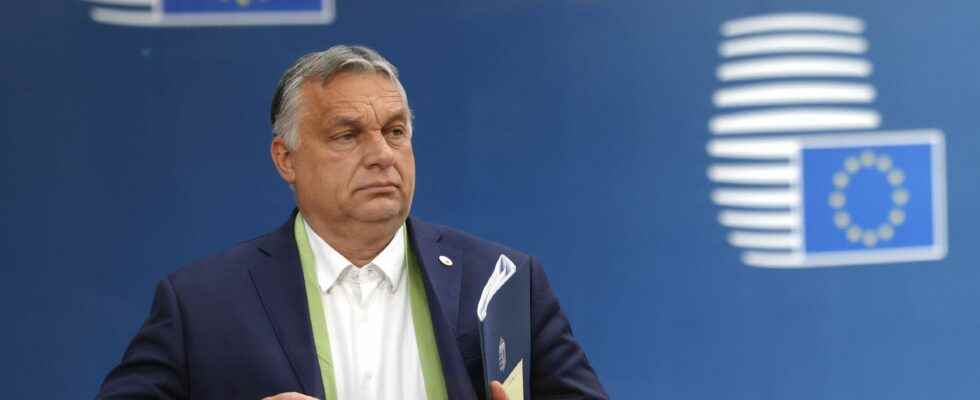Hitting the wallet, that’s the only thing that works. After years of arm wrestling with Viktor Orban, the Member States of the European Union have finally decided to financially sanction Hungary for its breaches of the rule of law. Part of the earmarked European funds for Budapest for the period 2021-2027 will be frozen, for a total amount of 6.3 billion euros. This is the first time in their history that the 27 have financially penalized a member of the club. “It’s a moment of truth where we see that through the budgetary tool, it is possible to do things in depth”, rejoices the European Commissioner for Justice, the Belgian Didier Reynders.
“Integrity Authority”
Since this year, the European Union has had a new instrument, called the conditionality mechanism. It makes it possible to attack corruption or the lack of independence of justice in a member country, in the name of protecting the interests of European taxpayers, the latter of whom finance the EU budget. The European Commission can request the suspension of the payment of subsidies to a country if it considers that the justice system is not independent or if the tendering procedures are not sufficiently transparent. A threat that she brandished last spring in the face of Hungary and which has already borne its first fruits. Budapest has prepared and adopted unprecedented measures, including the creation of an “integrity authority” responsible for combating endemic corruption. But at the end of November, Brussels decided that this was not enough and that it was necessary to wait to see if the measures were really implemented.
The European Commission has recommended freezing 65% of funds from three European programs. The continuous and strong pressure from the European Parliament played a role in this strong decision which surprised many diplomats. Some political groups in Strasbourg have raised the threat of a no-confidence motion hovering over the European Commission, which seems to have weighed on the choices of President Ursula Von der Leyen. On the evening of December 12, the 27 representatives of the countries of the European Union approved his proposal in substance, while reducing the amounts frozen to 55% of the total in order to take into account the efforts made by Budapest in the home stretch.
Show white paw
This decision is part of a more global whole. At the same time, the EU gave the green light to the recovery plan proposed by Hungary, but without authorizing the payment of money. Here too, we will first have to show our credentials on the rule of law. Still, it is a relief for Viktor Orban, who risked seeing other budget lines evaporate definitively if a green light for this plan was not given by the end of the year. The financial markets were waiting for it at the turn, while its economy is in crisis. In return, the Hungarian leader had to lift his vetoes on the 18 billion euros in European aid to Ukraine and on the reform of the taxation of multinationals, important texts held hostage for weeks.
“Orban had done pure blackmail by accumulating vetoes and nullissime threats such as the one relating to the entry of Sweden and Finland into NATO. There, he suffered a political and moral defeat, as well as a real humiliation financial”, rejoices the ecologist MEP Gwendoline Delbos-Corfield, at the forefront of this fight. “It’s a historic moment, something is happening, even if the work is far from over on fundamental rights, freedoms and minorities,” adds the European Parliament rapporteur on the Hungarian dossier.
Low profile in Budapest
In Budapest, the Orban government is playing low profile. He welcomes the validation of the Magyar recovery plan and maintains the hope of receiving the frozen 6.3 billion euros. The minister responsible for relations with the EU sells the decisions adopted in Brussels as a victory for common sense. “We kept our cool until the end when the European Parliament was hysterical and cool prevailed. This agreement is a good opportunity to set an example for other Member States”, pleads Tibor Navracsics. “It’s a victory for the European Union,” added Gergely Gulyás, director of the Prime Minister’s office, in front of a swarm of journalists. “We need normal compromises, especially in a context where maintaining European unity is more important than ever.”
Faced with record inflation (22.5% recorded in November), Hungary depends on European funds to relieve the country, which is plagued by closures and shortages. Monday, December 5, the president of the national bank, however loyal to the regime, exhausted the economic policy of power. The Hungarian currency, weakened for several months, perked up after the announcement of the agreement reached with the European Union. But Viktor Orban, released in Brussels by his Polish and Italian allies, is now under surveillance.
